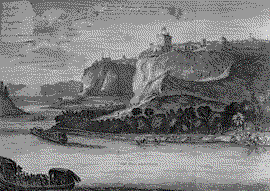Koen Bostoen - KONGOKING
Onderstaande beschrijving is in het Engels:
I (°1975) studied African Languages and Cultures at Ghent University (BA-MA, 1994-1997) and Anthropology (D.E.C., 1997-1998) and African Linguistics (D.E.A., 1997-1999) at Brussels Free University (ULB). In 2004, I obtained my PhD in Linguistics at the ULB under the supervision of Prof. Dr. Claire Grégoire. The title of my PhD dissertation was Etude comparative et historique du vocabulaire relatif à la poterie en bantou. It was published in 2005 as Des mots et des pots en bantou : une approche linguistique de l’histoire de la céramique en Afrique (Peter Lang Verlag).
From 2004 to 2011, I worked as a post-doctoral researcher at the Linguistics Department of the Royal Museum for Central Africa in Tervuren, where I helped to revive Africana Linguistica, a double-blind peer-reviewed A1 journal now. Since 2005, I am Lecturer in African historical linguistics and African oral literature at the Brussels Free University (ULB). Between 2005 and 2010 I was part-time visiting professor and since 2011 full-time professor of African Linguistics at Ghent University. Since 2012 I lead the KONGOKING research group, financed with an ERC Starting Grant and doing interdisciplinary research on the origins of the Kongo Kingdom.
Research
My field of research is the historical, comparative and descriptive study of Bantu languages, Africa’s largest language group. Some of my specific domains are diachronic phonology, diachronic semantics, lexical reconstruction, verbal derivation and argument structure, and information structure. I published on several Bantu languages, amongst others Cilubà, Mbuun, Shanjo, Fwe, Hungan, and the Bantu A70 and B80 languages. Over the last decade, I developed a special interest in the integration of language data into interdisciplinary approaches to the African past in general and the Bantu Expansion in particular. My particular objective is improving methods for using language data as evidence for the reconstruction of early history in Africa, especially in conjunction with bodies of evidence from other disciplines, such as archaeology, history, molecular anthropology, botany, zoology, etc.
Contact: Koen.Bostoen@UGent.be
Publications: https://biblio.ugent.be/person/801001959962
Website: kongoking.net
KONGOKING - Political centralization, economic integration and language evolution in Central Africa: An interdisciplinary approach to the early history of the Kongo kingdom.
The history of the Kongo area has been more thoroughly studied than that of any other region in Central Africa. We have unequalled insights in the area’s history of the last 500 years. There is a considerable body of historical literature covering the entire time span, completed with an even more important body of ethnographical, anthropological and art historical literature for the more recent periods.
Although Kongo history is well studied after 1500, very little is known about the origins and earlier history of the kingdom. The wider region of the Kongo kingdom is virtually unknown archaeologically. Systematic archaeological research on the origins of the kingdom has never been conducted. The research team will therefore undertake pioneer excavations in several capital sites of the old kingdom, both in Angola and the Democratic Republic of Congo.
Similarly, no comprehensive historical linguistic study has covered the languages in the area of the Kongo and closely affiliated kingdoms. Nonetheless, the earliest written documents with Bantu language data, going back to the early 17th century, originate from this region, and are readily exploitable. The research team will therefore undertake a historical-comparative study of the Kikongo dialect cluster and surrounding language groups, such as Kimbundu, Teke and Punu-Shira, systematically comparing current- day data with data from the old documents. Special attention will be given to cultural vocabulary related to politics, religion, social organization, trade and crafts such as metallurgy and pottery, which in conjunction with the archaeological discoveries, will shed new light on the origins, rise and development of the Kongo kingdom. 
Engraving of Mbanza Kongo, 1646, Olfert Dapper book
Due to the region’s rich historical tradition, it will also be possible to examine how political centralization and economic integration influenced language evolution and how these key macro-historical processes are reflected in the archaeological record. From a general methodological point of view, this approach will allow us to test correlations between historical, linguistic, archaeological and ethnographical data and thus to enhance interdisciplinary methods to study early history in other parts of Central Africa, which lack such a long historical tradition.